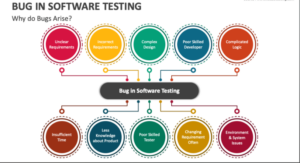By outsourcing software testing and quality assurance, businesses allow a capable vendor to manage and carry out all or a portion of their testing and outsource QA operations.
A company must be overconfident if it believes that its trained and ample testing resources can handle any project of any size and deadline and have access to the best testing tools and procedures. The truth is that businesses frequently fall short of meeting their whole testing demands. Outsourcing software QA is useful in this situation.
Outsourcing software testing enables businesses to reduce testing expenses, free up internal staff, gain access to top-tier QA processes and technologies, and raise their overall QA maturity level.
The primary point of contact with an outsource QA company is a Head of QA, who is in charge of the software testing activities. Managing an internal team is something that many people have expertise with, but dealing with foreign professionals might appear fairly difficult. A good QA tester training will tell you all you need to know regarding outsourcing QA teams.
How Will Outsourcing Affect Your Responsibilities?
Tech organisations typically think about outsourcing QA when they don’t have the necessary staff or knowledge in-house. For a specific project, some people hire a small outsourced software testing team. The others search for additional individuals to boost the testing resources. Others choose to add a specialised software testing solution such as mobile QA, automated testing services, or something else, to an existing team.
The quality assurance processes are always governed by the Head of QA (QA Lead or QA Manager). You choose the technologies, tools, and test case management software that will be most effective for the project. You must specify the number of team members you’ll require as well as their job descriptions. That holds true for both internal and external QA experts. The only variable is how many people are on your team. However, the obligations continue to be the same.
What is the same about managing an outsourced specialist, and what is different?
Managing an inside specialist and an external consultant is generally very similar.
You will share the same criteria for the candidacies, to start. You should pay close attention to the projects a QA engineer has worked on, their expertise in testing techniques, their writing skills, and their list of available tools.
Second, daily management is based on the same principles you would apply to an internal team, including creating processes with specific goals and deadlines; granting access to the pertinent project data; being open and honest in communication; encouraging initiative and independence; and relying on trust rather than micromanagement.
What about the differences?
You only handle a portion of management duties when your team has an external software tester. Keep in mind that you collaborate with a QA expert AND a business that oversees them locally. On the one hand, it facilitates your life. The professional growth and general welfare of a QA specialist are managed by a cooperating software testing firm.
On the other hand, some decisions require the involvement of a second party for final approval. You must discuss it with a Customer Care representative if you need a software tester to put in more time or sign a new document.
The Benefits of QA Testing Outsourcing
In order to choose a wise option for your needs related to product testing, you need first be aware of the advantages of outsourcing QA requirements.
Outsourcing QA administrations have proven to be quite effective due to the ease of allocating the QA effort and cost-adequacy.
The following are some crucial benefits that a QA outsourced team may offer your company:
- It prevents you from spending money on resources that you would have typically used to buy supplemental hardware and software.
- QA outsourcing service providers make sure that your project is thoroughly tested using the best available tools.
- Limiting management’s activities is made possible via outsourcing.
- The overall length of the software development cycle is shortened which gives the market enough time.
- It may give you the opportunity to work with exceptional outside ability and abilities.
- The final product will be high-quality and have top-notch features.
Conclusion
A quality assurance manager must be strategic and able to grasp the larger picture. Writing test cases and working directly with the software are no longer requirements. However, working directly with individuals can be difficult. Don’t become stuck on the myths and prejudices you may have heard if you decide to use external QA services at some time. It is not as challenging to oversee a remote workforce in another country as it would seem. Half of the work is already done because you are the team leader for QA. The final step is picking a trustworthy QA partner who can provide the level of services required. Check out the Course for qa tester platform to learn more about outsourcing QA teams.



























